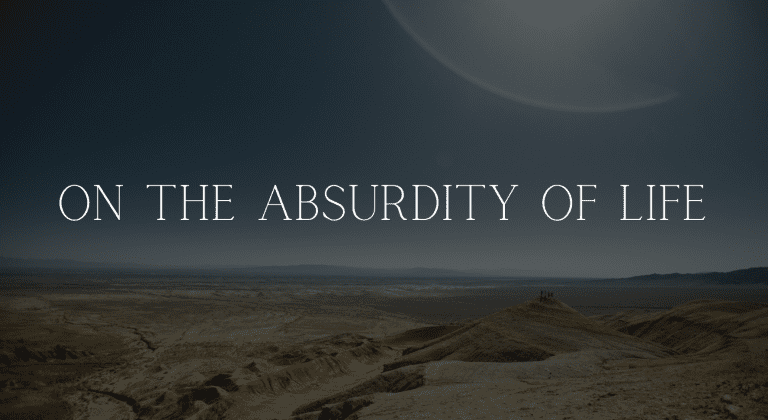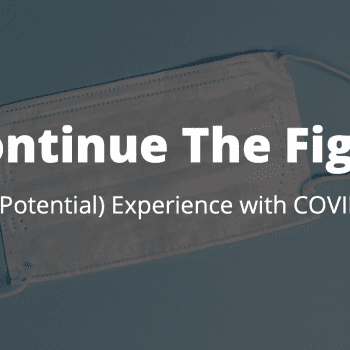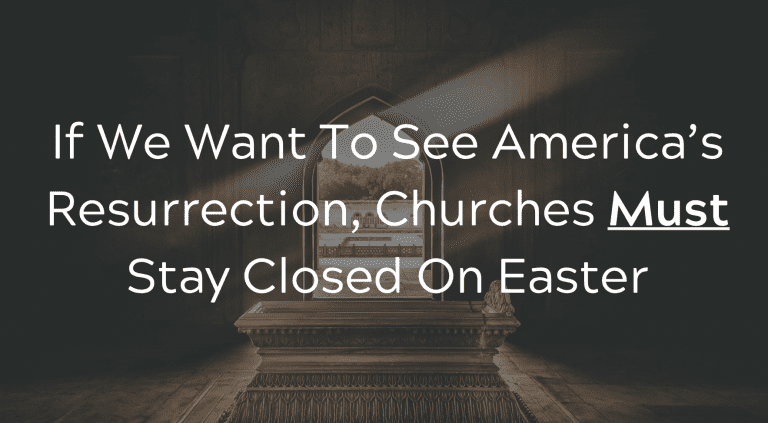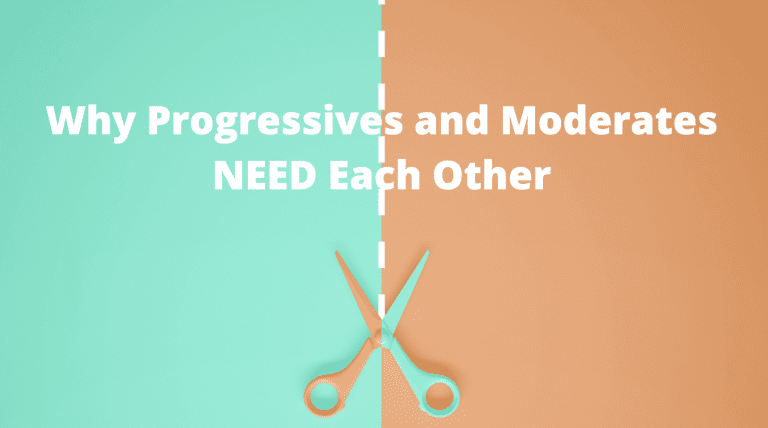Religion and politics should never mix…. How many people have heard that line before?
How many of us actually believe that line?
For so many people in our country, when communities of faith begin to get involved in or speak about political issues, a wave of fear washes over them, and rightfully so.
In the past, political leaders have used religion as a way to manipulate the masses to conform to their will.
And in our more recent history, religious leaders have partnered with political powers to create massive social movements that declare “Unless you vote for this party or this candidate, you’re not truly a Christian.”
When we stand back and look at the myriad of horrendous ways religion and politics have mingled for evil over the course of human history, we have good reason to be wary of any religious leader speaking about politics or any political leader endorsing religion.
But for those of us who follow Jesus and seek to take his words and actions literally, we quickly run into so major problems if we try to separate our politics from our religion, because nearly everything that Jesus teaches has major social, ethical, and political implications, don’t they?
I mean, how can we take Jesus’ command to care for the least of these seriously if we’re not willing to speak up against the misuse of tax dollars or creating economic schemes that benefit the wealthiest, or even just the middle class, but make conditions worse for the poorest in our society?
How can we say we’re caring for the least of these if we’re voting or worse, refusing to vote, when politicians are literally proposing policies that will directly impact their ability to survive and thrive in our communities?
You see, to separate our religion from our politics is nearly impossible, because any true religion, as defined by James deals with “looking after orphans and widows in their distress…” – to care for the most vulnerable in society. That’s what the Bible says, “true religion” is.
And what, then, are politics?
The word politics comes from the Greek word Politiká, and literally means to “care for the affairs of cities and the people in them.”
The heart of being political is to be concerned with the justice and flourishing of our cities, our communities, our countries, and our world.
And if you ask me, that sounds a lot like the Biblical definition of what “true religion” is.
Now, what I am not suggesting is that religion and politics are the same. For our country, there is a clear separation- the governement is elected to take care of the broad concerns of the nation, and the church, hypothetically, is meant to take care of individuals and local communities.
But there has also been a prominent myth that has been ingested by many American Christians in particular that religion should be private and politics should be public.
The thinking goes- “My religion is about my prayer life and my relationship to God. That should stay between me, God, and my church. Politics relate to what I want to see in the society around me. That’s different.”
Again, this line of thinking is understandable. Religion has been misused by political leaders to do horrendous things throughout the ages. Nothing is scarier, especially for a country like America that was founded on the principle of freedom from religious oppression by government, to see the two mixing.
But the truth is, religion, and more specifically, Christianity, is inherently political. AND Christianity is also inherently public.
Look through the Gospels, read the life of Jesus. 90% of everything Jesus says and does is in public. He teaches in public. He preaches in public. He does acts of justice in public. He heals in public. He criticizes the political leaders of his day in public.
Jesus certainly didn’t relegate his relationship with God to the private realms of his synagogue or prayer closet.
In fact, when Jesus is arrested for being a political threat at the end of his life, he mocks the soldiers saying:
“I have preached openly to the world- everyone knows what I teach. I have preached regularly in the synagogues and the Temple, where the people gather. I have not spoken in secret.” (John 18:20)
The faith of Jesus was a public faith. And it was a faith concerned with the affairs of people in the city. It was a political faith.
It follows then, that those of us who seek to follow Jesus would also live a public faith- a faith concerned with the affairs of the world and the people in it, not just with ourselves and our relationship to God.
(By this point in the message, some of you are very nervous about where I am heading. And others of you are ready to start yelling “Amen” because you think you know where I am going. Hold on.)
Christianity is a political faith. It’s a faith centered on the values of justice, righteousness, and peace for all people. The earliest followers of Jesus sought to create subversive communities that administered grassroots justice from the ground up, hoping that, with God’s help, they could transform the world into “the Kingdom of God.”
Have you considered that Kingdom is a political term? It’s a method of governing the political affairs of a nation!
And for the Jewish people, the Messiah was primarily a political savior, not primarily a spiritual one, although for the Jewish people there was no separation of religion and politics. The Messiah was meant to be sent from God to liberate them from political oppression and bring peace to the entire earth. That’s both a religious and a political vision.
So, friends, Christianity is a political faith.
But Christianity is NOT a partisan faith.
In this moment of our nation’s history, we are experiencing a level of hyper-partisanship like we have never seen before.
Our leaders are more concerned with being faithful to the platform of their party than they are concerned with representing their constituents or pursuing justice.
And that hyper-partisanship has trickled down to the general public- we now have made politics our national sport, and we’re allegiant to our team without actually considering what they team represents.
For many of us who are progressives, we automatically shut out conservative voices. We refuse to listen to their case, their reasoning, or their logic. We stereotype, criticize, and silence voices we disagree with as if they are the enemy.
For those of us who are conservatives, we do the same thing. We believe broad generalizations about progressives, buy into wild myths about the evil agendas of the liberals who want to kill babies, sell children into sex slavery, and destroy families.
We have ended up in a place where we have completely abandoned our desire for justice and a better country and world for all people, and instead, have turned politics into sport and our nation is crumbling because of it.
We have forgotten that we are not enemies of one another– we’re all citizens of this same piece of land, and when justice is established, we all benefit. We equality is won, everyone flourishes. When our families are provided for, the whole society becomes better.
And for followers of Jesus, when we put our allegiance in our political party over our faith in Christ and the commitments that following him binds us to, we have become idolaters. We have become part of the problem, not the solution.
The call of Jesus to all who claim to be his disciples is simple. When Jesus began his ministry, he stood up in the synagogue and read from the Prophet Isaiah, declaring this to be his mission in the world: (Luke 4:18-19)
“The Spirit of the Lord is upon Me,
because He has anointed Me
to preach the gospel to the poor;
He has sent Me to heal the broken-hearted,
to preach deliverance to the captives
and recovery of sight to the blind,
to set at liberty those who are oppressed;
to preach the year of God’s justice.”
This was Jesus mission. This is what Jesus claims to have fulfilled. And if this is what Jesus was about, it should be what those of us who claim to be his followers are about.
And you know what’s funny? If I sat down with a democrat and a republican and read that statement, 99% of them would agree that they believe all of this is good and that they would like to see it implemented in the world.
Who doesn’t want to see the poor liberated from poverty?
Who doesn’t want to see captives liberated from chains?
Who doesn’t want to see the blind receive their sight?
Who doesn’t want to see freedom given to those who are oppressed?
Who doesn’t want to see God’s perfect justice and peace reign throughout the earth?
These aren’t partisan values, folks. And as cynical as we may be about those on the “other side”, we need to remember that at the end of the day there is just one side. We all are seeking a better world for everyone.
Paul proclaimed:
“In Christ’s family, there can be no division into Jew and non-Jew, slave and free, male and female, for you all are one!” (Galatians 3:28)
If we are one people in Christ, then why are we dividing over political boundaries?
If we are one in Christ, why have we pledged allegiance to our party over the common good of everyone?
Those of us who are followers of Christ have a lot to repent of- on the right and the left- if we have placed our party before our desire to follow Jesus through loving our neighbor as ourselves, no matter how they vote.
Jesus proclaimed: “A house divided against itself cannot stand.” (Matthew 3:25)
President Abraham Lincoln picked up on this wisdom from our Lord and proclaimed to the divided country in the midst of civil war:
“I believe this government cannot endure, permanently half slave and half free. I do not expect the Union to be dissolved—I do not expect the house to fall—but I do expect it will cease to be divided.”
Lincoln saw that when our nation was split so profoundly on the issue of slavery, that such a stark polarization was about to destroy the fledgling nation. Lincoln called for us to cease aligning with our parties and to unite on the cause of justice and equity for all- a country where all were free and equal.
Thankfully, after much work, our nation awoke. Led in large part by those who were compelled to follow Jesus example of equality, our nation fought to abolish slavery and declare that all Americans deserved the same dignity, regardless of their race.
In our day, we stand on the brink of another collapse of the house of our nation. We are divided, not primarily on values or issues of justice, but because we have siloed ourselves and dedicated our lives to party allegiance rather than deeply considering what justice for all would look like.
As followers of Christ, there is no other path forward but for us to look deeply at the Scripture, intently at the example of Jesus, and ask- how can these values be implemented in our society for the common good of everyone?
We are not to ask, “What does my party say to do?”
But what does Jesus say to do?
We are not to ask, “What benefits me and my people the most?”
But what benefits all people the most?
I believe if we began to vote on values once again, and vote in alignment with Jesus, we would see our political divisions healing.
Because democrats and republicans are all seeking the same thing- a flourishing nation.
We may disagree on how to get there.
At times, each party will advocate for things that are contrary to the values of Jesus and to the common good, and in those moments, we must speak up, act up, and vote against such policies.
At times, the other party than the one we naturally align with may advocate for a more just path, and it’s our job to support justice wherever it emerges, not simply party.
And as we consider what ways we desire to vote, I want to challenge us to again, stop thinking “What is best for me” and instead to ask, “What is best for the least of these?” What is best for the most people? What would Jesus vote for?
I guarantee that when we ask this question in honesty, we will find that the way we vote changes. The policies we advocate for change. The politicians we align with may change. ‘
But if you’re a follower of Jesus, you have an obligation to ask these hard questions of yourselves, your neighbors, and your leaders.
If you desire to see the “Kingdom of God come and God’s will be done on earth as it is in heaven”, like Jesus prayed, you have an obligation to not simply do justice in your day to day life, but to vote for values of Jesus and the Kingdom he proclaimed.
Because as a Christian your allegiance must be to Jesus first, and Jesus allegiance was to the least of these and to the common good of all people.
Amen?
Over the next few weeks leading up to the midterm elections, our pastoral team has prayerfully decided to explore with you the question: How would Jesus vote?
We’re going to look in Scripture at the major social issues that Jesus advocated for, and see if we can create a vision for the kind of society we should be working for as followers of Jesus.
We have no partisan allegiance in our exploration here. Our job as ministers of the Gospel is to look at the text and see what it says and to teach that to you. And it’s our hope and prayer that as we approach the election next month, you would prayerfully consider how to vote based on your allegiance to Christ.
Not based on what a preacher says. Not based on what your favorite politician or pundit says. But what Jesus says and does.
Today, as we come towards the end of this message, I want to look at the most basic teaching of Jesus and ask what that would look like if implemented in our society today:
During his famous sermon on the mount, Jesus gives a now infamous command
that he says sums up the Law and Prophets:
“Therefore, you should treat other people in the same way that you want people to treat you, for this is a summary of all of the writings of the Law and the of our Prophets.” (Matthew 7:12)
This text has become known as the “Golden Rule” as is taught by ethicists and theologians alike as the foundation for a strong social ethic. This is the most foundational and basic building block of a justice society and world.
But within what seems like a simple statement is a lot of depth.
The most fundamental assumption in the golden rule is that one as taken time to step back and ask the question “How would I like to be treated?”
The Golden Rule asks us to examine within ourselves first, not selfishly, but in order to begin to lay a foundation for our understanding of what a just world looks like.
This process of self-examination isn’t something that can happen once, but is an ongoing question we should be asking in every situation that life presents us.
We also realize that this rule demands action from us before we expect it from others.
We ask, “How would we like to be treated?” and then are called to begin treating others this way. When this becomes our foundational way of living in the world, everything begins to be transformed.
Just imagine a common scenario: When you walk by a person experiencing homelessness on the street, and you ask yourself “How would I like to be treated if that was me?”, the answer would likely sound like “With dignity and respect as an equal human being, and probably with some help getting my basic needs met.”
So, to dignify that person might look like acknowledging them, speaking to them, helping them get food. But it also probably looks like voting for policies that help provide services for folks who find themselves without a home so that they can get on their feet and have an equal shot at living a dignified life.
See, the Golden Rule calls us to a posture of empathy. And when we can empathize, it’s nearly impossible to demonize. Homeless people aren’t just an inconvenience on our way to work in the morning, no, we begin to think of ourselves in their shoes, and that changes the way we think, act, and vote.
It’s easy to make judgements on people from a distance: “They got their because they drink too much and are irresponsible.” Okay, maybe that’s true. But they are there now- and if that was me, how would I want to be treated- With compassion, with respect, and with someone offering me a legitimate path towards recovery, healing, and a new start.
Can you see how the Golden Rule changes everything?
It does what no law can ever do- laws are great at telling us when we mess up and telling us what not to do. The Golden rule, on the other hand, tells how we should act and what we should do. It’s a positive principle.
When this becomes the way, we move through the world and the way we engage in politics, we will naturally start finding ourselves leaning towards the oppressed and those on the margins. We will naturally find ourselves gravitating towards being willing to sacrifice some of what we have to help others. We will naturally find ourselves looking more and more like Jesus.
Now take the Golden Rule and look at our country today. Imagine how things might change if our leaders adopted this is as their core principle.
Could we truly look at refugees, fleeing from certain death, and say “build a wall, keep them out?”
Is that how we’d want to be treated?
Could we truly look at the working poor all across our nation and then vote for economic policies that benefit only the upper class?
Is that how we’d want to be treated?
Could we truly look at the masses of Americans struggling with opioid addictions and then vote to support companies right to continue to promote opioids for profits and restrict access to non-addictive drugs?
Is that how we’d want to be treated?
Could we continue to elect and support politicians who have histories of lying and sexual abuse, silencing the women and disregarding the trauma they’ve faced?
Could we truly support any candidate whose slogan is “America First” when our Rabbi tells us that the first shall be last and the last shall be first?
Is this how we’d want to be treated?
Church, it’s time for some serious self-reflection.
It’s time for us to look at ourselves in the mirror and ask, “How do I want to be treated?”
It’s time for us to look at our lives in the mirror of Jesus’ life and say, “Do these look the same?”
It’s time for us to look at the country and world around us and ask, “Is this the more just and generous world Jesus sought to create?”
And if not, we should begin working to change it. First in our own day to day lives. And also in the voting booth.
Because real people’s lives are on the line. And all people matter to God. And in this nation, we have the power to make a change for the common good.
“Do to others what you would have them do to you.”
May we hear these words of Jesus deep in our bones this week, and begin to look at our lives and at our politicians and seek to align with those who most reflect Jesus’ answer to this question.
Amen?
Pray with me.












